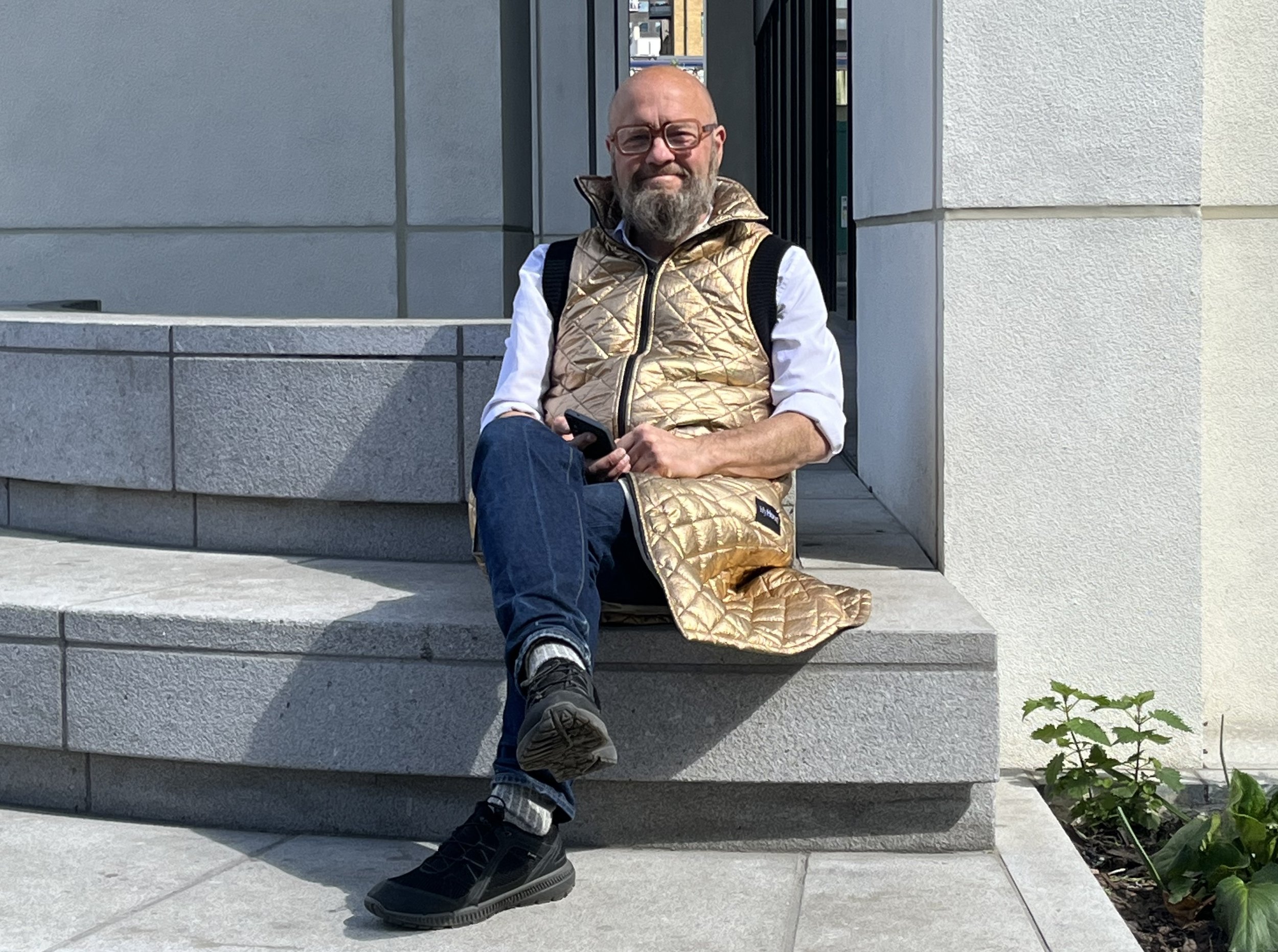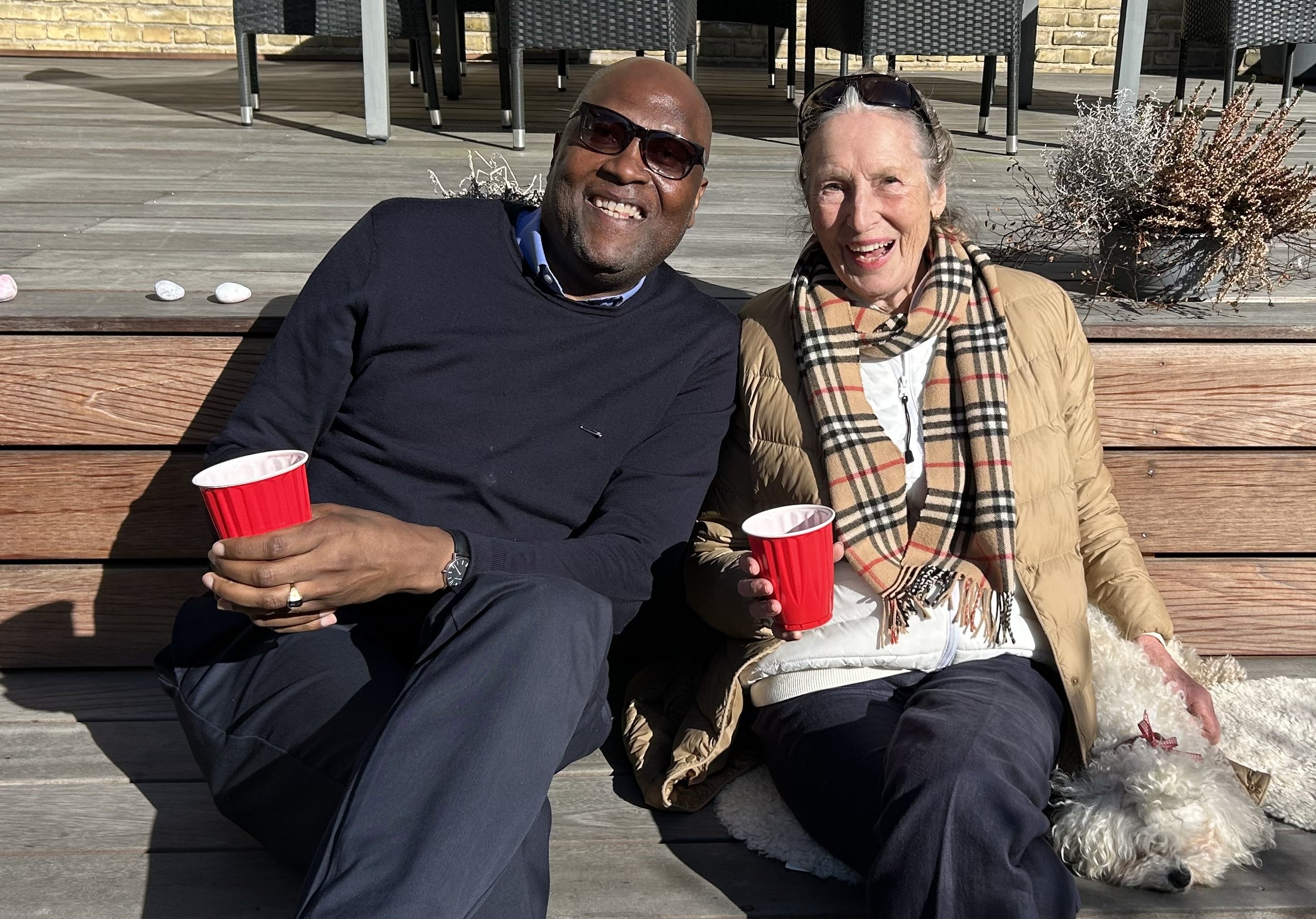I think good sales and marketing is really about commercial teaching. It’s about showing people their options, what’s possible, and then saying, if this resonates, come to us, because this is what we do. Don’t pretend to solve everything, in fact it’s much better to only solve a small part of the bigger puzzle. My product helps bridge the gap from where you are to where you want to be, through structured coaching. But my focus isn’t on your problem, it’s on you. I’ll listen, I’ll ask the questions others might not, and I’ll hold you accountable for moving forward.
Creating equitable spaces
Real leadership is not about avoiding discomfort, it’s about facing it with care. Power dynamics exist in every leadership and coaching relationship, and avoiding them doesn’t erase them, it just lets them operate in the shadows. For leaders committed to growth, the real work is to acknowledge these dynamics and manage them with honesty and integrity. Ignoring power can create unspoken barriers, limit trust, and stifle authentic conversations.
Remember that naming the dynamic doesn’t weaken your authority, I think it strengthens trust. It shows you're aware of your influence and are using it responsibly. Especially when addressing behaviours that clash with your values, the way you engage is critical.
Respect for different cultures
As coaches, much like in sales, we are constantly required to think on our feet, navigating new and often unpredictable situations by relying on our instincts and quick judgment. To be truly effective, we must examine our own biases to ensure we do not discriminate, and approach every interaction with a deep respect for different cultures. I think our values are embedded in everything we do, from how we treat people to how we resolve conflict, both with others and within ourselves.
Mental strength is something we build
10 mindsets of mentally strong people
They don’t fear being alone as solitude can be a superpower.
They don’t dwell on the past, they focus on staying present.
They don’t believe life owes them anything, they take ownership of their path.
They don’t waste energy worrying about what others think, they stay in their own lane.
They don’t indulge in self-pity, they choose action over victimhood.
They don’t obsess over what they can’t control, they focus on what they can influence.
They don’t resent other people’s success, they see it as a positive-sum game.
They don’t shy away from responsibility, they know the price of greatness is responsibility.
They don’t give up, resilience is their habit.
They don’t fear hard times, they see them as opportunities for growth.
Which of these practices speaks to you the most right now?
Seek and you shall find
Passion is often sparked by what excites us, what we enjoy, what energises us. On the other hand, purpose runs deeper as it is anchored in what we believe, the values we hold, and the change we want to see in the world. When we lead with purpose, passion transforms, it becomes more than personal fuel, it becomes a force for meaningful impact. And the lens through which we choose to see the world profoundly shapes what we experience. If we move through life in search of excellence, for example, with curiosity, hope, and an openness to be inspired, then we are far more likely to encounter excellence in people, in moments, and in ourselves. On the contrary, if we move through life scanning for flaws and failures, our view narrows, and all we see are problems. What we look for becomes what we find and often, what we create.
““What a piece of bread looks like depends on whether you are hungry or not.””
Do you care?
I think disappointment, though uncomfortable, can actually be a sign that someone cares, it means there’s an emotional investment. So, the real question becomes: What do I value, and what do I need to do to honour myself in this? Sadly, we are living in a time where many relationships feel transactional, but choosing to lead with presence and authenticity is how we bring meaning back into them.
Take responsibility
In today’s fast-paced world, where many interactions feel transactional, choosing to lead with presence and emotional intelligence is not just courageous, it’s transformational. It requires slowing down in a culture that rewards speed, listening deeply when distractions are everywhere, and responding with empathy even when pressure mounts. Leading this way builds trust, strengthens relationships, and creates space for people to show up as their full selves. It’s not about being soft, it’s about being strategic with humanity at the core.
Emotional intelligence helps leaders navigate complexity, manage their own reactions, and foster environments where collaboration, innovation, and accountability thrive. I think in a time when so many are craving connection and meaning, this kind of leadership is more than a skill, it’s a responsibility.
Looking back
Sometimes, the life you want is waiting on the other side of doing the things you’d rather avoid. If you consistently show up for the hard stuff, the uncomfortable conversations, the inner work, the decisions you have been delaying, you will find yourself inching closer to the life you’ve always wanted. And when you take a moment to look back, you will see that every twist, every detour, and every challenge - even the ones you didn’t deserve or weren’t your fault - played a part in shaping who you are today. I think the rear-view mirror may not always show a perfect path, but it often reveals a meaningful one which was rich with lessons, growth, and resilience earned at every stage.
Stay aware
Don’t let someone else’s rudeness disturb your inner peace. Your time and energy are valuable and protecting them is essential. One of the most powerful boundaries you can set is to simply let people be who they are. The more you allow others to live their lives without trying to control or correct them, the more ease and clarity you create in your own. It’s a quiet but radical act of self-respect, one that shields you from unnecessary stress and drama. I think at the end of the day, your true power is not in how others behave, but in how you choose to respond.
Use this reframe
I think true leadership in relationships regardless of whether they are personal or professional will start with self-awareness. Therefore, the only real shift in any relationship begins with you. When you intentionally change how you show up, not to manipulate or fix, but to create space, you allow others to be who they are. That space invites honesty, reduces friction, and deepens connection. Instead of wishing someone were different, you get to decide how you want to engage based on your values and boundaries.
It's better to show than to tell
When it comes to protecting your reputation, actions speak louder than words. The way you consistently show up in your work, your relationships, and your integrity will always speak more clearly than any explanation you could give. If someone is saying something about you, the emotionally intelligent response is to approach them directly, with curiosity rather than defensiveness. Gossip often stems from insecurity or a desire for control, not truth. As a leader, you have the power to choose your response: is this something worth addressing, or simply information that helps you better understand the dynamics around you? I think in some cases, it’s not about confrontation, it’s about recalibrating your time, energy, and trust accordingly.
Healing takes time
Image c/o Gary Cook
No one really prepares you for how challenging it is to rewire your mind to embrace possibility after living through pain or trauma. Healing takes time, patience, and a deep willingness to imagine something better. As much as we may want to change others, the truth is, we can’t. What we can do is invite reflection, offer perspective, and lead with empathy. As a human-centric coach, my aim is to build bridges towards greater self-awareness, towards others, and ultimately, towards what it truly means to be human.
In organisations and in life
There will always be those who seek truth and understanding, and those who fall into patterns of gossip or misinterpretation. Some choose to focus on ideas and long-term impact, while others are more preoccupied with personalities or power dynamics. We encounter both rational, thoughtful leaders and individuals who strive for influence in less constructive ways. I think recognising these contrasts is not a reason for cynicism, it’s an opportunity because the more aware we become of these dynamics, the more intentional we can be about the kind of leadership we model and cultivate. We get to choose what we amplify, and that choice shapes the culture around us.
Track your progress
c/o @LizAndMollie ©
One of the most powerful things you can do is learn to be okay alone. I think when you are truly comfortable in your own skin, you no longer crave external approval. This inner strength can be cultivated through practices like meditation, journaling, or training on your own, all of which help you build confidence, clarity, and self-reliance.
““Rest and be kind, you don’t have to prove anything.””
A free flow
One of the most effective and often overlooked strategies is structured feedback. Whether it comes from direct reports, a coach, or even a partner at home, feedback provides leaders with a mirror. It reveals whether intentions are aligning with impact. Yet, in many organisations, feedback remains a neglected tool. Surprisingly, a significant number of senior leaders have never received direct, developmental feedback. Even more striking: many are deeply uncomfortable giving it. Why? I think it’s because feedback is often framed as criticism rather than what it truly is a tool for growth, a signal of trust, and a lever for accountability. When feedback is seen as a gift, it opens the door to real-time course correction and continuous improvement.
Change only happens when you are ready
Have you ever tried to change the behaviour of a partner or spouse who had no interest in changing? Or a teenager who just wasn’t having it? How did that work out?
In my coaching practice, when clients are motivated, open, and committed to doing the work, they always move forward, not because I say so, but because they say so. Everything we discuss is 100% confidential. Please note that before our first session, we will both sign a non-disclosure agreement to ensure your privacy and trust are fully protected.
Hire an expert
Leadership development isn’t just about attending inspiring keynotes or completing DEI training programs, it’s about what happens afterward. If your leader returned from such a program and never shared what they learned or how it might influence the team, you likely felt disappointed or disconnected. That silence speaks volumes about your leader.
I think real growth comes from implementation, not just insight. I believe in a leadership development process that is not only proven but practical. One that can be developed, coached, and scaled through partnerships, because leadership isn’t theoretical: you can’t learn to swim by reading a book. The real challenge isn’t understanding leadership, it’s practicing it, consistently and courageously, in everyday interactions.
It’s a business imperative
Creating a sense of belonging is no longer a “nice-to-have.” As I look to grow within a truly international organisation, I am particularly motivated to work alongside senior executives, where I believe I can drive the greatest impact. One of the emerging challenges for leaders today, especially in Denmark is building inclusive cultures that sustain high trust. Denmark’s society has long been rooted in shared history and cultural norms. However, with more than 600,000 residents now holding non-Danish passports, integrating diverse perspectives into the social and professional fabric is critical. I think how leaders respond to this shift will define the success and resilience of their organisations in the years ahead.
Cultivating skills
Comfort is a natural human preference, leadership requires recognising when the pursuit of comfort undermines growth. Discomfort often triggers cognitive resistance, yet it is essential for innovation and learning. Effective leaders distinguish between upholding their core values and reacting defensively when others do not mirror them. How do you lead when faced with perspectives that challenge your beliefs? Leaders who prioritise personal comfort over collective progress risk surrounding themselves with "people like us." I think this dynamic stifles diversity, weakens resilience, and narrows strategic vision.
Think like a coach
I have written on numerous occasions about both the growth and fixed mindsets, but as I am currently studying for my ICF accreditation, I want to focus on the coaching mindset. Our mindset serves as the reference point by which we interpret our thoughts and frame the world around us. As coaches, having a coaching mindset is crucial. The more awareness we have both of our clients and of the coaching process itself, the deeper and more transformative our work with clients can be.





















